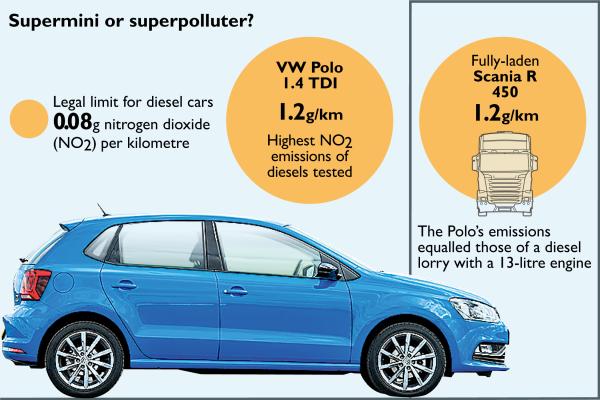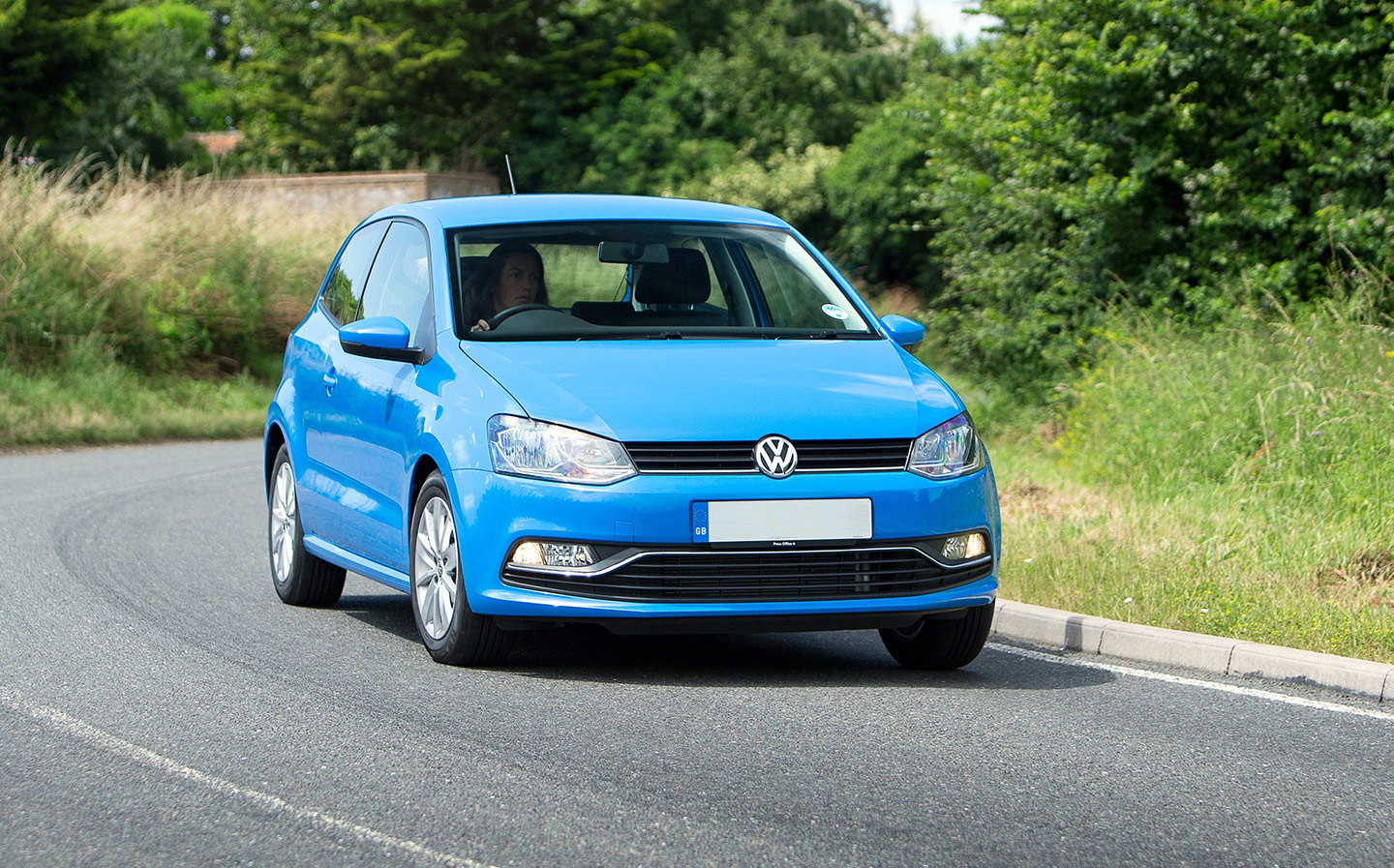VW Polo as toxic as a fully laden lorry
Small, inexpensive cars lack sophisticated emissions tech
ONE OF Britain’s leading superminis, the Volkswagen Polo, is among the worst polluters on the road, according to newly revealed test data.
VW, disgraced in the 2015 Dieselgate scandal, pledged then to slash emissions but researchers found that the latest diesel-engined version of the Polo emitted as much toxic nitrogen dioxide (NO2) as a fully laden lorry.
“The worst-performing car [in the tests] was a VW Polo with a 1.4-litre turbodiesel engine with NO2 emissions 13 times higher than EU regulations allow,” said James Tate of Leeds University’s Institute for Transport Studies, who analysed the test results.
Browse NEW or USED cars for sale on driving.co.uk
“Its emissions of 1.2 grams of NO2 per kilometre were the same as a fully laden diesel truck with a 13-litre engine that we also tested.”
The tests were commissioned by Transport for London which published the results with a separate paper in an academic journal.
In the tests, carried out by Millbrook, a vehicle testing firm in Bedfordshire, a vehicle was driven around London on a predetermined course at night, then again during morning rush hour and for a third time around midday. The pattern of acceleration, cruising and deceleration was recorded and then replicated on a rolling road where emissions could be precisely measured.
Then the emissions of 13 cars and four lorries were measured as they followed the same speed profile. “The key finding was that small diesel cars emitted far more pollution than larger cars and even lorries,” said Tate. Other high polluters included a Vauxhall Astra, Ford Focus and BMW 318d. “On average, the diesel cars tested emitted as much NO2 as 1,000 petrol-hybrid cars.
“This shows the emissions problem can be solved but for cheaper cars the technology is too expensive”
“These results also suggest that replacing diesel taxis with petrol-hybrids would be one of the quickest ways to improve city centre air quality,” he said.
One puzzle is why small cars generate more pollution. Tate found they have less sophisticated emissions controls to save money and space.
By contrast, the larger VW Passat emerged as the cleanest of all the diesels tested.
“This shows the emissions problem can be solved but for cheaper cars the technology is too expensive and there may not be enough space to fit all the extra components,” said Tate.

VW said it lacked details on how the cars were maintained, which could have affected results. “In other studies, VW Group vehicles are comparable with and in many cases better than those of our competitors.”
VW faced more criticism after research suggesting that in Europe 1,200 people would die prematurely because of the extra pollutants produced by VW cars fitted with “defeat devices” that let them cheat emissions tests.
VW said most diesels emitted more when driven than in EU standardised tests so it was unfair to target one manufacturer. “It is therefore difficult to understand why VW vehicles should be mentioned in connection with significant “life-years lost”.
Browse NEW or USED cars for sale on driving.co.uk
The Society for Motor Manufacturers and Traders, the industry body, said one answer was for people to buy new cars — with lower emissions.
It said: “From September there will be an even tougher test for new cars which includes on-road testing and a more robust laboratory test.”
Sadiq Khan, the mayor of London, said: “It beggars belief that 18 months after Dieselgate, motorists are still being sold vehicles that breach emission standards on the streets.”
Diesel curbs spread to 30 towns
Thirty British towns and cities may have to impose restrictions on diesel vehicles, under plans being considered by the Department for Environment, Food and Rural Affairs (Defra).
Last November, a High Court judge deemed Defra’s plans to combat air pollution to be ineffective and ordered it to come up with something better — by next month.
Defra had proposed bans or restrictions on diesels in six cities but has since confirmed that 30 towns may need such measures. Civil servants at Defra are also in talks with the Treasury to change tax rules that encourage firms buying cars for staff to favour diesel over petrol. Rules giving diesels lower vehicle tax could also be reversed.
A Defra spokesman said: “We are firmly committed to improving the UK’s air quality and cutting harmful emissions.”
Jonathan Leake, Environment Editor
This article first appeared in The Sunday Times





